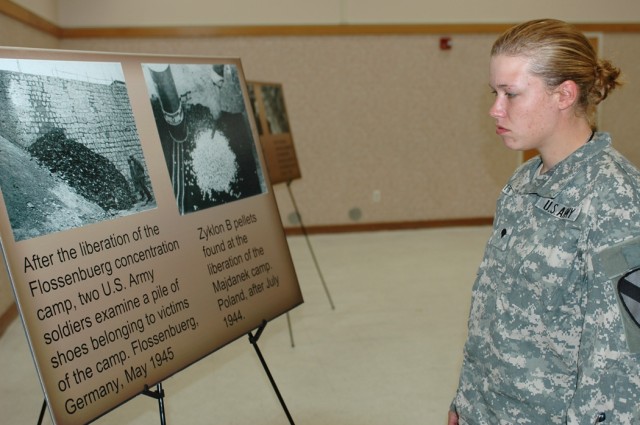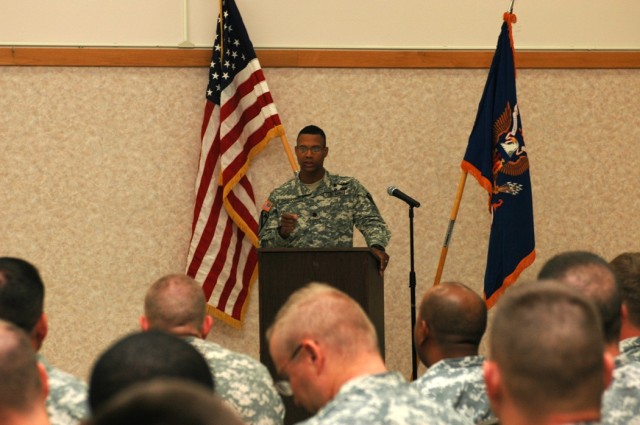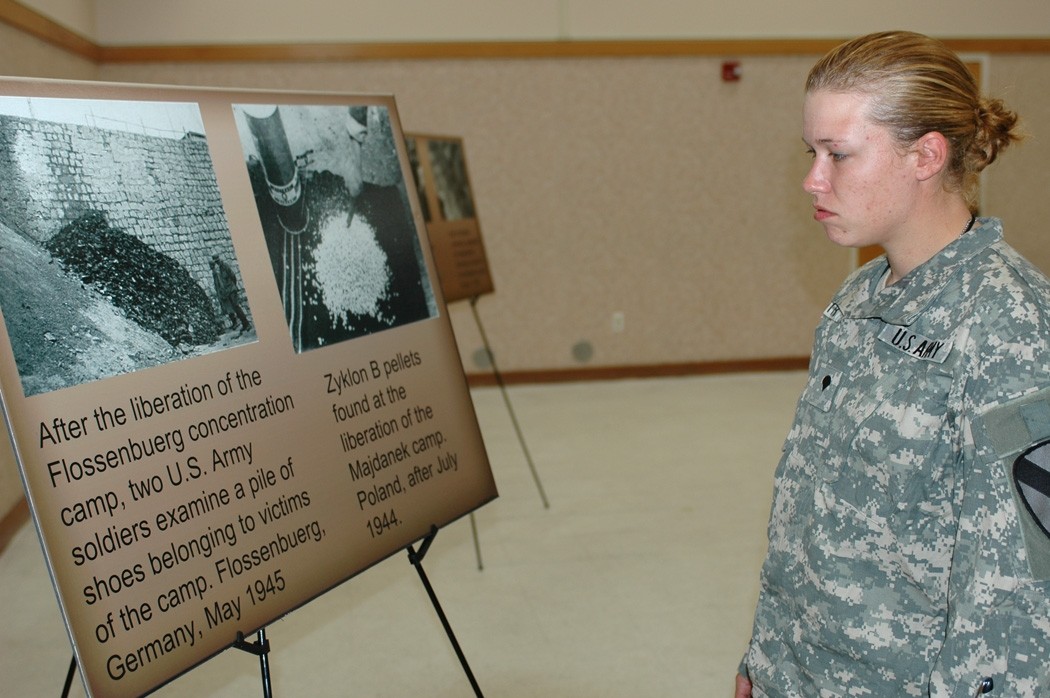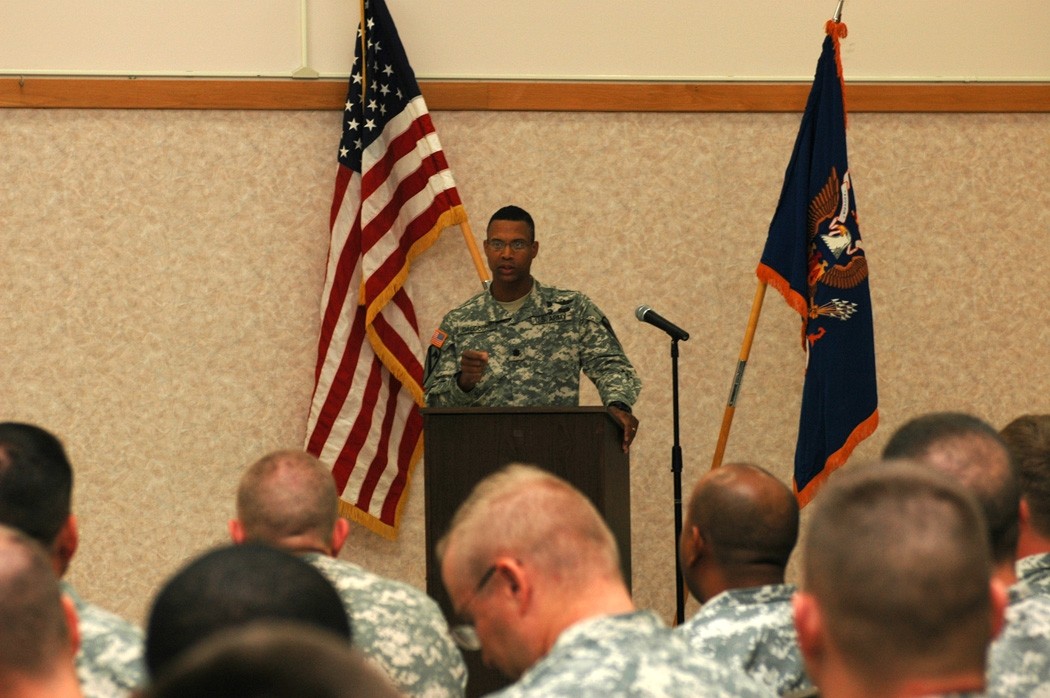FORT HOOD, Texas - Nearly 63 years after the end of World War II, the numbers of Holocaust survivors are dwindling.
With events like the 1st Air Cavalry Brigade's Days of Remembrance observance, the horrors and atrocities inflicted on millions during that period in world history will be remembered long after all of the survivors have passed on.
The April 30 event, hosted by the 1st Battalion, 227th Aviation Regiment, 1st ACB, included photo displays of what life was like for Jews in concentration camps in western and eastern Europe and two documentaries by director Steven Spielberg.
During the Holocaust, more than 6 million Jews - two-thirds of the European Jewish population - were murdered.
"It is in the spirit of learning, growing, bettering ourselves and educating ourselves that we gather here today," said Baton Rouge, La., native Lt. Col. Charles Dalcourt, commander of 1-227th Attack Reconnaissance Battalion. "We consider it a point of departure for those that are unfamiliar and a reminder for those acquainted with the atrocities, violence and dehumanization associated with the Holocaust."
The Days of Remembrance observance may be more relevant for American military members who have long stood up to fight against tyranny.
"I think that what people took away from this program is what the Jewish people in Europe went through - the nightmare and atrocities - at the hands of a government," said Etna, N.Y., native Sgt. 1st Class Mark Rogers, the 1-227th ARB Equal Opportunity representative. "This shows how one person's hatred can defile a whole nation."
"You can see what humanity is capable of if it is not prevented," said Spc. Kristina Hunter, a fueler from Company E, 1-227th ARB, who calls Birmingham, Ala., home. Hunter's great-great aunt and uncle immigrated to the United States to escape the Holocaust. "I talk to my cousins about this, and a lot of their ancestors are gone; they weren't able to get out. I'm really glad that (the Army) does programs like this. It shows not just equal opportunity but equal compassion for each ethnicity."
The annual Days of Remembrance observance also ensures that this event in world history will not be forgotten.
"Within 20 to 25 years, there won't be any survivors left," Rogers said. "If we take a day each year to remember this, it won't be forgotten and hopefully won't be repeated."




Social Sharing